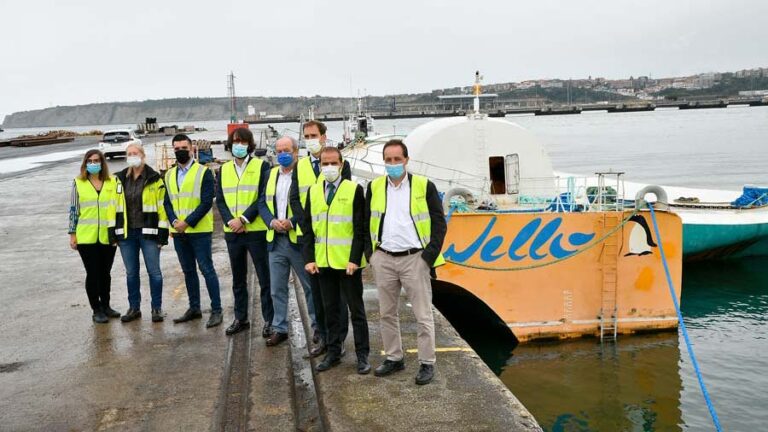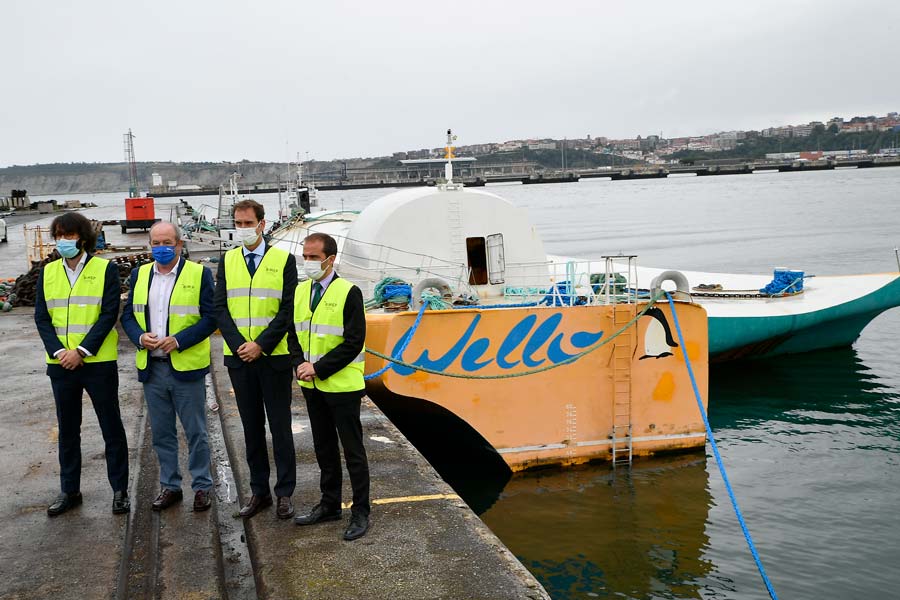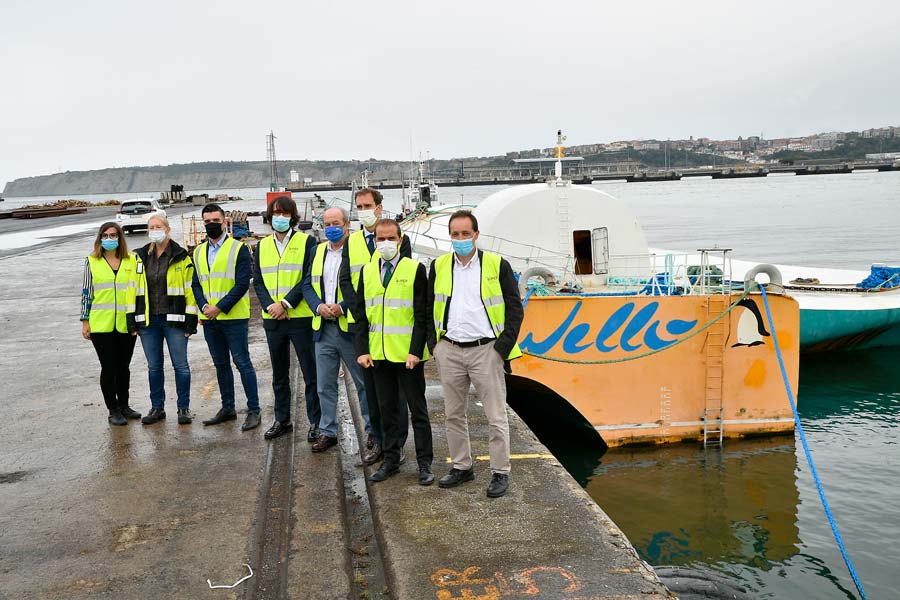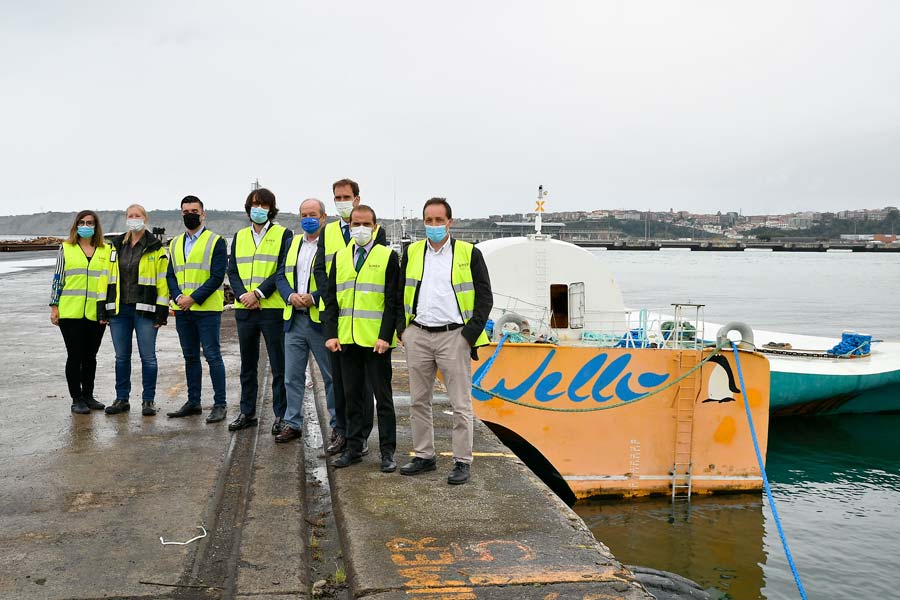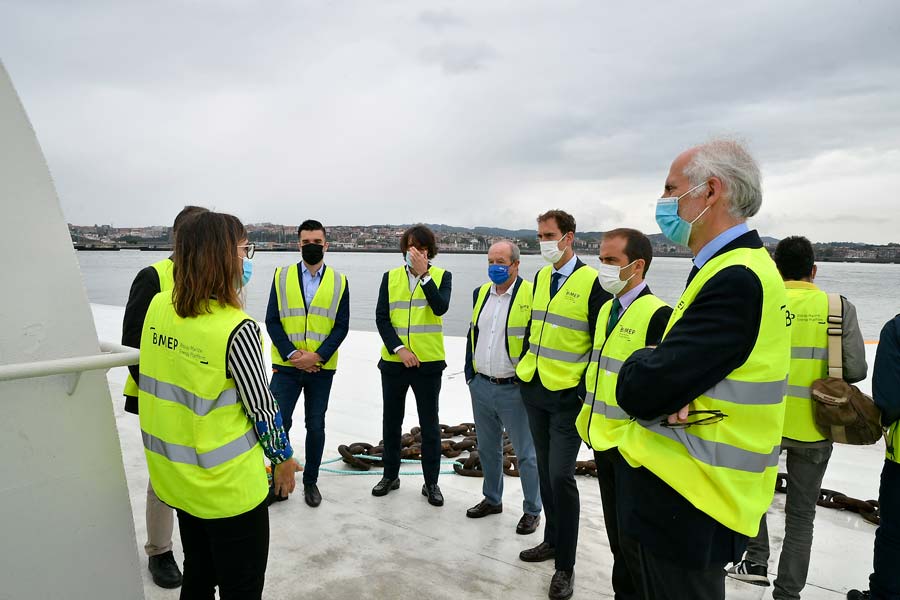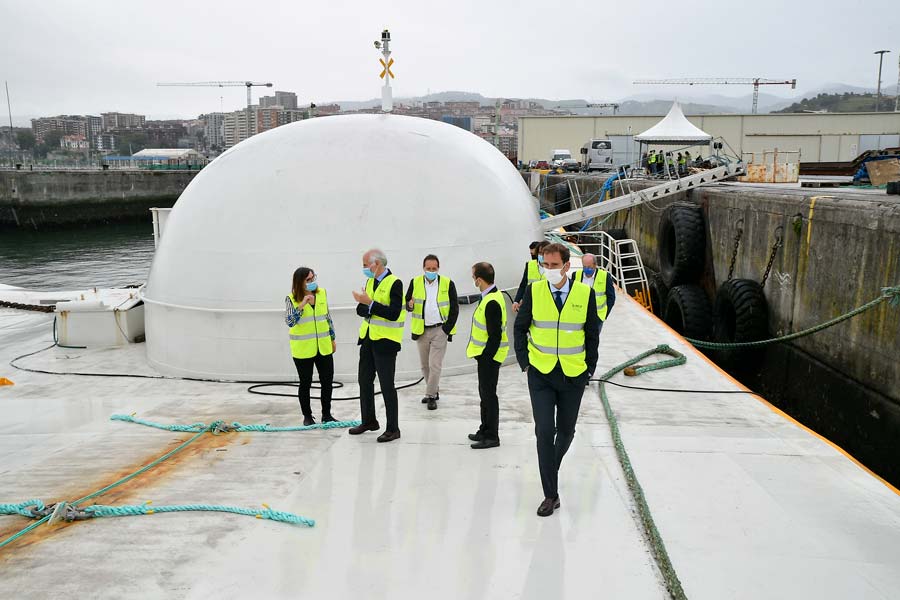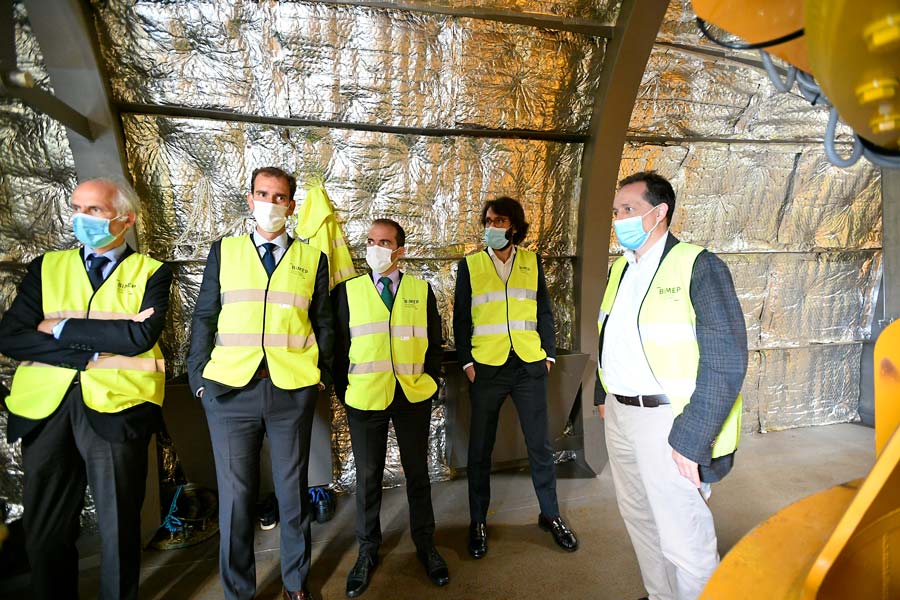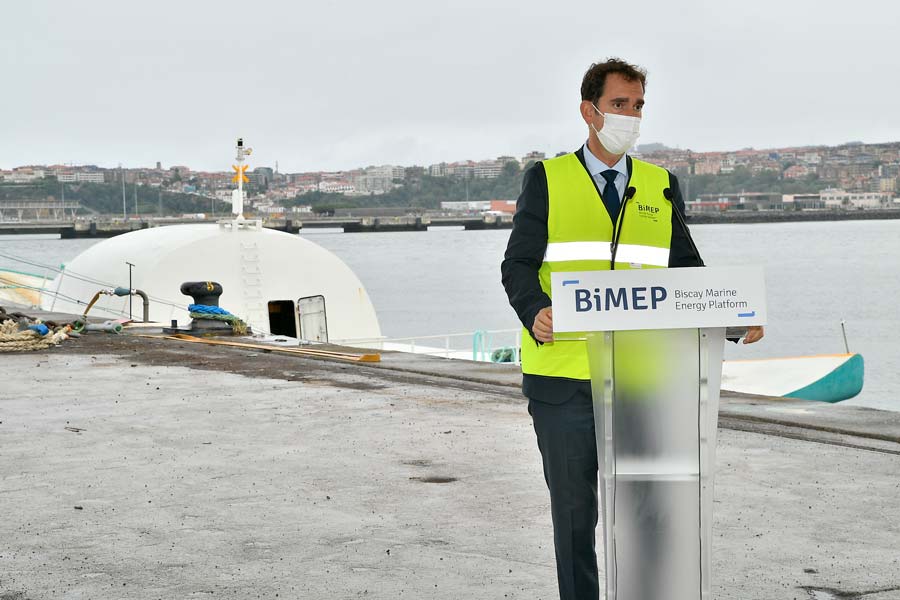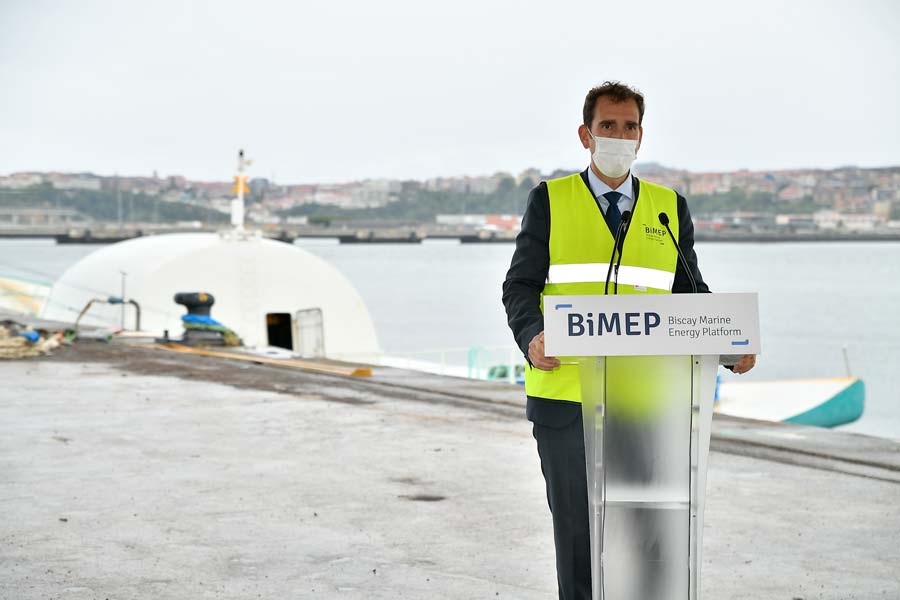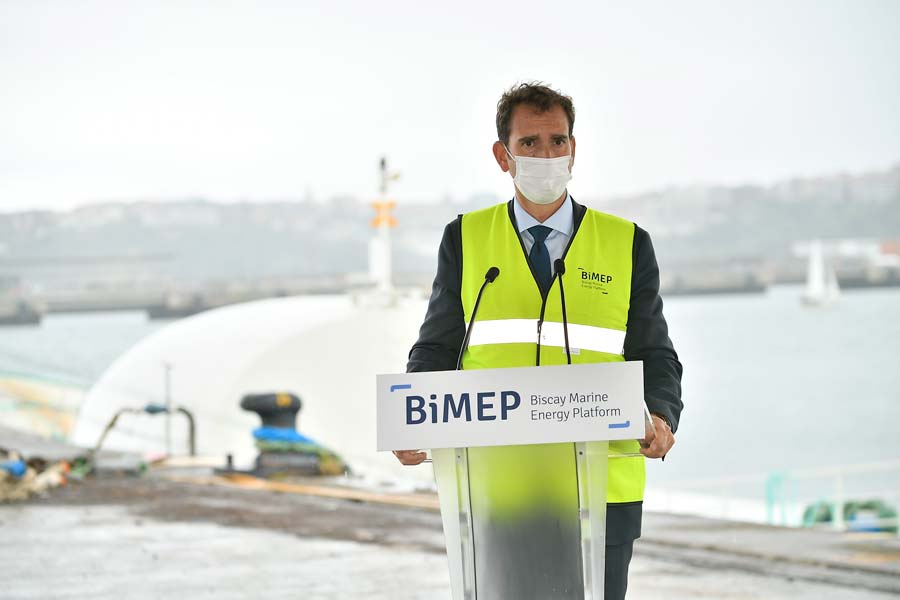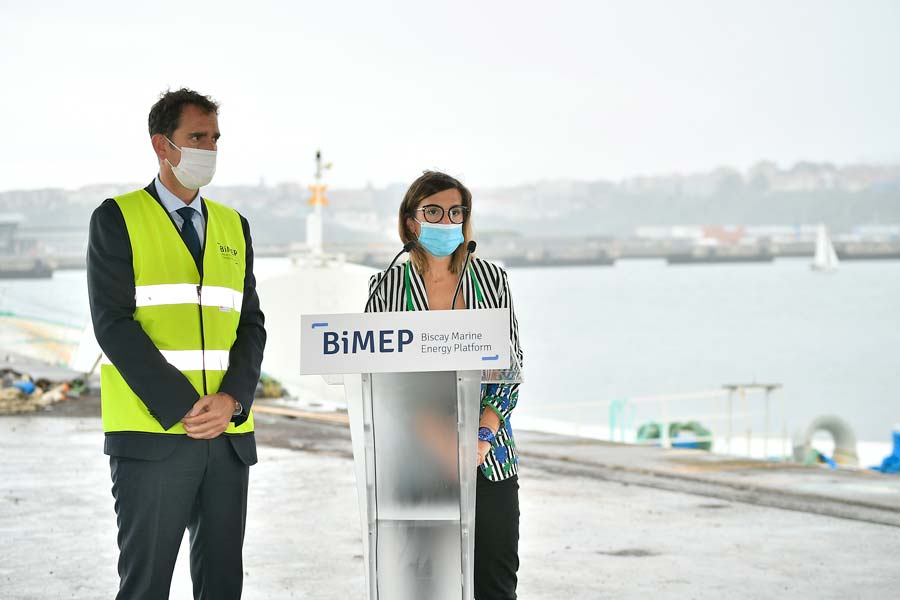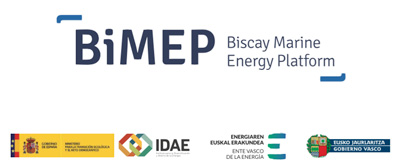Finnish firm Wello’s Penguin device to undergo two years of trials at BiMEP.
- Smaller versions of the unique floating device have previously been tested in Northern Europe.
- The Basque Country is now a hub for testing ocean power technologies.
A new floating wave energy collector recently arrived in the Basque Country where it is to undergo two years of tests at the BiMEP facilities in Armintza. Tech firm Wello chose the Basque marine energy test site for preliminary trials on its technology prior to future commercial roll-out.
Regional Vice-Minister for Industry and President of BiMEP, Javier Zarraonandia, together with Director General of the Basque Energy Agency, Iñigo Ansola, and the Director of Renewable Energies and the Electricity Market at the IDAE, Víctor Marcos Morell, this morning paid a visit to the Penguin wave power generation device. Created by Finnish company Wello, it is currently at temporary moorings in Bilbao Port. Mr Zarraonandia highlighted the “Basque Country’s capacity to offer cutting-edge research areas that are competitive in Europe and to attract first-class technologists” to conduct tests and studies in local infrastructures. He said that “this knowledge flow translates into new short- and medium-term opportunities for technological and industrial development”.
The boat-shaped Penguin device arrived in the Basque Country some weeks ago. After undergoing a series of maintenance operations, it will be installed this summer at the BiMEP offshore test site in the waters off Armintza, where it will be trialled for two years.
Penguin is a large floating system, shaped somewhat like an asymmetrical boat hull (with differences between the bow, stern, port and starboard) to take maximum advantage of the motion of the waves. Inside, the continuous movement of the sea drives a rotating device, which is connected to a generator to produce electricity. The device has a maximum power of 1 MW and although it is still at trial phase, it could generate up to 1 million kWh. This power will be transferred to the land via BiMEP’s subsea cables and then sent to the grid. A key feature of the Penguin is that it has no hydraulics, joints or gears, making it unique in this category.
The technology has been developed by Finnish company Wello, which performed the first tests on a smaller version in Scottish waters. Following its success there, it has now developed this large-scale device for trialling in the Basque Country. The aim is to test the power output and working of the control system under the marine conditions BiMEP can offer. The project also includes the Italian firm Saipem, which hopes to gain the necessary experience in engineering and offshore activities for the subsequent worldwide roll-out of Penguin converters.
Wave power
The visit highlighted some of the technological progress made in recent years in the area of floating wave power devices. This particular sector of the renewable energy industry is still under development but there are significant growth expectations for coming years. Test centres such as BiMEP are contributing to these developments. BiMEP can offer tech companies an offshore site with all the permits and technical services required to perform feasibility studies on a range of offshore floating technologies, including wave energy and floating wind power.
Wave energy has the potential to play a significant role in future renewable energy supply. Moreover, it is compatible for use in offshore wind farms. The floating devices are installed at large distances from the coastline in areas where the waves have more usable energy. Renewable sources like this are needed to meet decarbonisation targets and energy transition goals. They also represent a whole new sector of energy innovation that can help create new industrial opportunities —as wind energy did— new knowledge, new projects and new jobs.


